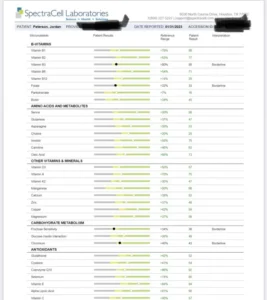“I can’t eat meat, my cholesterol goes up!”
“I’m on statins to lower my cholesterol levels. I’m supposed to avoid eating fats.”
“Eating fat increases your risk of heart disease.”
Nope.
First off, here’s a short background on cholesterol:
What is cholesterol?
First, let’s discuss lipoproteins.
A lipoprotein is basically a regular cell membrane mixed with different types of proteins (apolipoproteins). Lipoproteins transport different fat-soluble substances (including fat-soluble vitamins, cholesterol, and triglycerides) in the bloodstream. Cholesterol is a fatty substance carried around in a lipoprotein.
There are two types of cholesterol-carrying lipoproteins. Low-density lipoproteins (LDL) are generally known as the bad cholesterol. It’s said that if you have high levels of LDL cholesterol, they can build up in your arteries and cause heart disease. Statins are used to lower your LDL levels. Then there are high-density lipoproteins (HDL) which are generally known as the good cholesterol. What is supposedly healthy are low levels of LDL and high levels of HDL.
Before quite recently, all cholesterol was thought to be bad. Here are Times Magazine covers suggesting people avoid cholesterol high foods. Fortunately, Time recently came out admitting that cholesterol wasn’t all bad, after who knows how many people suffered by cutting out the few healthy foods they were actually eating (fatty meat anyone?).
What does the actual research show?
There’s growing evidence that cholesterol is protective.
High levels of HDL cholesterol is associated with longevity.
Low LDL levels INCREASE your mortality risk (1,2,3).
High HDL decreases your mortality risk.
Higher levels of overall cholesterol REDUCE mortality risks.
Things about this whole cholesterol issue and the mainstream medical system that irritate me:
Here’s what the Mayo Clinic has to say about cholesterol and heart disease. This is a source that is supposed to be trustworthy. This is still what the medical community (generally) has to tell us about cholesterol. This is a website I used to rely on when I was trying to figure out what was wrong with me! That entire article is filled with information that is outdated, dangerous, and wrong. It says right on it that “eating saturated fat, found in animal products, and trans fats, found in some commercially baked cookies and crackers, can raise your cholesterol level (true). Foods that are high in cholesterol, such as red meat and full-fat dairy products, will also increase your total cholesterol (true). And that leads to heart disease. WRONG.
Then they tell you other factors that ACTUALLY lead to heart disease:
What actually leads to heart disease?
- Obesity
- Large waist circumference
- Smoking
- Diabetes
Then they tell you how to supposedly get rid of said risk factors:
- Eat a low-salt diet that includes many fruits, vegetables, and whole grains
- Limit the amount of animal fats and use good fats in moderation
- Lose extra pounds and maintain a healthy weight
HA. How are you supposed to lose weight by following their guidelines, eating fruits, veggies, even worse – grains- and avoiding meat? And what does salt have to do with it! Throwing salt under the bus and it’s 2018! Eating that way is literally the opposite of how you can lose weight! No wonder everyone is overweight, miserable, and dying of heart disease! Or we can listen to what the Mayo clinic suggests and blame the fact people are sick on them and their lack of exercise…
All those actual risk factors can be improved (if not eliminated) by eating differently, or by just going zero-carb (all meat).
I’m going to get my cholesterol tested in a couple of months, I’ll update this post then. Unfortunately, I don’t have a pre-carnivore look at my cholesterol levels to compare to.
Mercola writes a good article about cholesterol if you want to read more.
More information (given to me by a blog reader – thank you!) if you’re still curious:
Articles with citing from scientific journals:
- The Diet-Heart Myth: Cholesterol and Saturated Fat Are Not the Enemy
- Debunking the New Cholesterol Guidelines
- 50 Years Ago, Sugar Industry Quietly Paid Scientists To Point Blame At Fat
- Cholesterol is Good For You by Georgia Ede
Scientific Studies:
- Meta-analysis of prospective cohort studies evaluating the association of saturated fat with cardiovascular disease
- Populations that have high cholesterol experience less CVD, are more resistant to liver diseases, and live longer than those with low cholesterol
- High levels of HDL cholesterol is associated with longevity.
- High levels of overall cholesterol and LDL cholesterol is associated with better memory in the elderly.
- Low LDL levels INCREASE mortality risk (article1, article2, article3).
- High HDL decreases your mortality risk.
- Higher levels of overall cholesterol REDUCE mortality risks.
- Cardiovascular disease in the masai
- High carbohydrate intake is associated with a higher risk of mortality, and high fat intake with a lower risk
Books:
- The Great Cholesterol Myth: Why Lowering Your Cholesterol Won’t Prevent Heart Disease
- The Big Fat Surprise: Why Butter, Meat and Cheese Belong in a Healthy Diet
- Good Calories, Bad Calories: Fats, Carbs, and the Controversial Science of Diet and Health, specifically this part
- Cholesterol Clarity: What The HDL Is Wrong With My Numbers?
Videos:
- Are Saturated Fats Safe and How Much to Have (with citing from scientific journals)
- David Diamond- Demonization and Deception in Cholesterol Research
- Does Cholesterol increase after eating fat? Cholesterol as a dynamic variable snapshot
NY Times Articles:
- How the Sugar Industry Shifted Blame to Fat
- New Study Favors Fat Over Carbs
- Sugar Industry Long Downplayed Potential Harms and Blamed Cholesterol
TL;DR
There is NO strong evidence that cholesterol is bad. In fact, there’s much more evidence that it’s good for you, and that low levels are dangerous. If anything, low cholesterol is what you should be worried about. From my experience, most tests you can get at a doctor’s office (but not all) will just give you information that people (including your doctor) don’t understand, make you worried, give you a diagnosis, when you could eat zero-carb, solve your health problems, and not go through any of that worry.





Great post Mikhaila. I’ve been learning this recently as well. I’ve stopped caring about Cholesterol and completely committed to Carnivore/Zero Carb. My body and mind tell me more than any study or article can and it’s telling me everything is running smoothly and in good order. Our fear driven society relies to heavily on reassurance and we lose our connection with our bodies. You are a prime example of reconnecting. I’ve heard and read you say you were only able to get back to a 7/10 recently. Any better now?
Are you familiar with dr Jack Kruse’s work about light and cold?
Also, can you please advice on the most reliable type of IgG test?
Denise Minger talks about eggs re: China Study https://deniseminger.com/the-china-study/
I follow Jack Kruse, he makes a lot of sense, especially explaining how our biology evolved, and what we can do to match our present environment to an ancestral one. I have done cold baths, but not for as long or consistently as I would need to. I do use blue blocking glasses at night though.
Congrats on the speaking gig, I hope you’ll start YouTubeing soon like your dad does. Your dad’s the first person I’ve ever followed on YouTube, and I’m hopeful that between the two of you, I can get the information to get my life sorted:) I’m on day three of your exclusion diet; my issues are fatigue, depression and ADHD-related symptoms. I’m wondering if you could please reply to this question pretty please:
…because you seem to say that it’s best to keep taking medications during the first month of the exclusion diet, I’m taking my escitalopram 40mg and vyvanse 50mg – however, I’m also a former smoker so I’ve kept taking nicotine logenzes too – even though they contain sugar. I can’t chew nicotine gums because they make my jaw ache and my skin sag. So my question: do you think it’s okay I keep eating my nicotine logenzes at least for the first month of trying your diet (as it’s a medicine technically, to help stay away from the other 2999 types of toxins in cigarettes) or how much is there a risk of this sabotaging the whole exclusion diet month?
Big love to you and your family, you’re the best family in the public eye ever!
The website Thincs.org is a great source of information for us, cholesterol skeptics. Thincs stands for The International Network of Cholesterol Skeptics.
Thanks for you blog, Mikhaila, its great you make the effort to share with us..
I follow your dad on youtube. He’s a genuine and corageous man❤️
Not many like him around…
Sad that the medical community continues to promote the cholesterol story, and NEED FOR STATINS.
I wonder if it’s the same for the “need” for BP meds? Those meds cause other issues, like water retention/swelling, which I never had before going on them.
Yes, to the BP meds “need” question. At least, that’s the experience my husband had. The Doctors had him on BP meds for 20 years as a professional driver, but when he retired, he went off of them and replaced them with more natural supplements. He now takes Michaels Blood Pressure Factors, and Red Yeast Rice. One Dr. argued that one of the ingredients in Red Yeast Rice was the same as in his prescribed Rx for BP. He “warned” my husband that that ingredient was better processed to a “higher standard” than in the supplements one can buy at the local health food stores. Nevertheless, my husband has been using these more natural supplements for four years now and his BP is within normal range every time he takes that measurement. He has no side negative effects either. So, for us, it has positively “Paid” to take a pro-active approach to our own health needs/issues. I have used this approach for myself with other issues as well. Never had a negative problem develop. Read, learn, research, and talk to others! It does give one a broader perspective! And it’s worth it!
Leave a comment